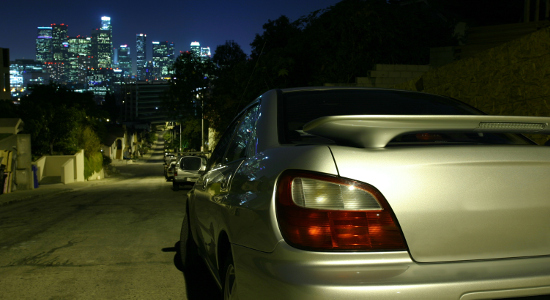
Nov. 8, 2017 – The U.S. Court of Appeals for the Seventh Circuit recently ruled (5-3) that Milwaukee police did not violate the constitutional rights of a passenger in a vehicle that was parked illegally when officers swooped in and seized the occupants.
Randy Johnson was a passenger in a parked car when police rolled up. The vehicle was stopped within 15 feet of a crosswalk, unlawful under Wisconsin law unless the car “is actually engaged in loading or unloading or in receiving or discharging passengers.”
One squad car pulled to the side of the vehicle with spotlights. Another pulled in behind. In all, five police officers joined the stop. They were part of a street crimes unit assigned to patrol “hot spots” that, one officer explained, could lead to “bigger and better things.”
One officer approached the car and it appeared to him that Johnson, in the back seat, was attempting to hide something (it turned out to be a gun).
The officer ordered Johnson to exit the vehicle, at which point the gun came into plain view. All passengers were ordered out of the vehicle and handcuffed.
After failing on a motion to suppress, Johnson entered a conditional guilty plea for possessing a weapon as a felon and is serving a 46-month federal prison term.
Johnson had argued that the gun should be suppressed because police did not have an adequate reason to issue a ticket – the car could have been loading or unloading passengers, and that is an exception to the restriction on parking close to a crosswalk.
Police moved in too quickly, Johnson argued, leaving no time to see if the exception would apply. With no reason to issue the ticket, he argued, there was no probable cause and no justification for approaching the car and seizing the passengers inside.
But the district court was not persuaded. And neither were five judges on the Seventh Circuit Court of Appeals. In U.S. v. Johnson, No. 15-1366 (Oct. 27, 2017), a 5-3 majority upheld Johnson’s conviction and rejected his Fourth Amendment argument.
Police had probable cause, the majority noted. The seizure was justified. “The Fourth Amendment requires searches and seizures to be reasonable; it does not demand that police and other public officials resolve all possible exceptions before approaching a stopped car and asking the first question,” Judge Frank Easterbrook wrote.
 Joe Forward, Saint Louis Univ. School of Law 2010, is a legal writer for the State Bar of Wisconsin, Madison. He can be reached by email or by phone at (608) 250-6161.
Joe Forward, Saint Louis Univ. School of Law 2010, is a legal writer for the State Bar of Wisconsin, Madison. He can be reached by email or by phone at (608) 250-6161.
Johnson suggested that the police had ulterior motives because the vehicle’s occupants were black. The district court had relied on a case, Whren v. U.S., 517 U.S. 806 (1996), which says police motives don’t matter when police have probable cause. But Johnson said that case doesn’t apply to parking violations, as opposed to moving violations.
The majority ruled that Whren applies generally to fine-only offenses. It didn’t matter whether the vehicle was parked or moving when police obtained probable cause.
Dissent
Judge David Hamilton dissented, joined by Judges Anne Claire Williams and Illana Rovner, concluding the police made an investigatory stop that was not reasonable. He noted that five officers swooped in with police cars on the basis of a parking violation.
The dissent said the majority opinion extends Whren and Terry v. Ohio, 392 U.S. 1 (1968) – involving an armed robbery – “to allow this pretextual seizure based on the suspected parking violation,” thereby enabling seizures for “parking while black.”
Hamilton said the intrusion on Johnson’s privacy and liberty, with great police force, was not justified by the governmental interest in this case: writing a parking ticket.
“Extending Terry and Whren to allow police to use a mere parking violation as a pretext for seizing a car’s passengers, and then using the occasion to remove them and handcuff them, loses sight of reasonableness and proportion,” Hamilton wrote. “The police tactics here would never be tolerated in more affluent neighborhoods.”
